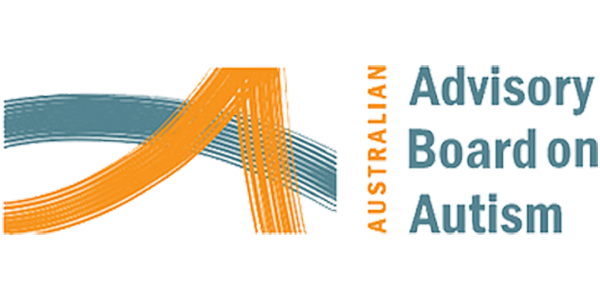Participate in a research project
High quality research is essential to enable better understanding of autism and to develop improved supports in the future.
Why should you get involved?
Researchers are always looking for participants for their projects – the more participants, the greater the chances of meaningful results that reflect the wide range of issues that autistic people and their families face. So, get involved where you can – it will help improve their knowledge and it may benefit you!
Disclaimer: Autism Queensland aims to support research that promises to inform future directions of services for individuals on the spectrum and their families. Although we screen each project before advertising, we do not necessarily endorse the views, activities or organisations of researchers.
Projects seeking participants
Contact details of all researchers are provided for each of our projects. If you are interested in participating in a study please click on those of the following you believe will be of interest. This list is updated regularly and includes research being undertaken externally and by Autism Queensland.
A study of the efficacy, safety and tolerability of Investigational Products in an ASD population
Participants Required:
We are looking for young people between 5 and 17 years of age diagnosed with ASD who also experience emotional dysregulation (e.g. easily irritable)
Brief Description of Project:
Research has shown the irritability may be the end result of a complex system of underlying difficulties including anxiety, sleep issues, mood concerns and epilepsy. These difficulties may be linked to serotonergic dysfunction. Investigational Products may modify this serotonergic difficulty thus improving the downstream outcomes noted above.
Benefits to Participants:
We hope that this study will add to the body of literature relating to the impact of Investigational Products on irritability. Furthermore, we hope that participants will benefit from the experience of participating in a clinical trial and understand how medications “come to market” from this process. Participants may also benefit from frequent trial appointments with a multidisciplinary team.
Contact Details:
Contact the CCTRND via 30697532 or [email protected]
Exploring Experiences of Repetitive Behaviours
Participants Required:
Adults (18+ years) who are autistic and have a co-occurring diagnosis of OCD.
Brief Description of Project:
We want to better understand what kinds of repetitive behaviours individuals engage in, and how they may be experienced as helpful or challenging. We are seeking autistic adults with a co-occurring diagnosis of OCD to complete a brief 15 minute survey and an interview (approximately 30-45 minutes), including individuals with formal diagnoses or who self-identify as autistic.
Interviews can be conducted online or face-to-face depending on participants’ individual preferences. The online survey asks questions about experiences with repetitive behaviours and interests and obsessive-compulsive symptoms. We will ask for more details about these behaviours in a follow-up interview. Once participants have completed both the survey and the interview, they will be provided with a $20 gift voucher as reimbursement of your time.
Participation is completely voluntary, and your responses will be deidentified. This project has ethical approval from Griffith University Ethics Committee (GU ref no: 2023/327). To access the information sheet, consent form, and survey, please click here:
Benefits to Participants:
This research will not directly benefit participants. However, participating will help us to better understand the complex nature of repetitive behaviours, and the ways in which different repetitive behaviours may contribute to psychological health and life quality for individuals on the autism spectrum and those with OCD. We hope this will inform clearer parameters for identifying and providing support for autistic individuals and persons with OCD. We hope the findings of this research will increase our understanding of behaviours that may be helpful and those that may be harmful. This knowledge is likely to benefit others on the autism spectrum and people with OCD in the future.
Contact Details:
Jess (Jessica O’Loghlen), phone 0412 437 299, e-mail [email protected]
Jess (Jessica Paynter), phone 07 5678 7058, e-mail [email protected]
Learning about neurodivergent adults’ thoughts on using a self-guided online program for mental health
Participants Required:
We would love to hear from neurodivergent adults (aged 18 and over) who live in Australia to help raise neurodivergent voices and improve care. We are looking for self-diagnosed or officially diagnosed adults who have any of the below neurotypes: Autism, Attention Deficit/Hyperactivity Disorder (ADHD) including 2e presentations, AuDHD, Dyslexia, Dyscalculia and Dyspraxia.
Brief Description of Project:
We would like neurodivergent adults (aged 18 and over) to complete a short 15–30-minute online survey on their perspectives towards the use of self-guided online programs for mental health. In the online survey you will be asked both closed and open questions and you do not have to answer all questions or give a great amount of detail (unless you want to). These questions will explore your previous experiences and attitudes of using various types of mental health interventions as well as some information about your circumstances. Findings from this study will inform the future development and implementation of these programs with the neurodivergent community, with the hope of improving care and allowing the voices and needs of neurodivergent individuals to be heard.
Benefits to Participants:
Your participation will help improve the mental health support we are able to provide to neurodivergent people and allow them to have a voice about what sort of interventions suit their needs.
Contact Details:
Dr Shelley Viskovich
Principal Investigator
The University of Queensland
[email protected]
Georgia Darr
Co-investigator
The University of Queensland
[email protected]
James Fowler
Co-investigator
The University of Queensland
[email protected]
Researchers
If you would like to have your project listed on our site, please click here.
For more information about research at Autism Queensland
P. 07 3273 0000


